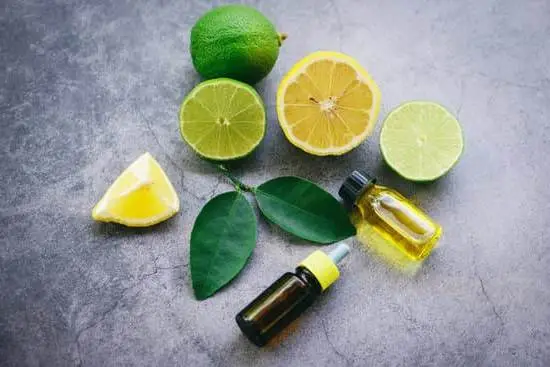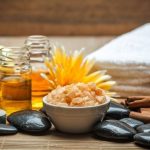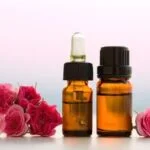Is aromatherapy oil safe for skin? This is a question that has sparked numerous debates and discussions among skincare enthusiasts and professionals alike. In this article, we delve into the safety concerns surrounding the use of aromatherapy oils on the skin and explore the potential risks and precautions associated with their application.
We will also provide tips on selecting high-quality aromatherapy oils, guidelines for diluting and using them safely, as well as insights from dermatologists and aromatherapy professionals. Additionally, we will examine the positive effects of aromatherapy oils on various skin conditions and share real-life experiences from individuals who have used them.
Finally, we will explore alternative options for those with sensitive skin and weigh the benefits against the risks to determine whether aromatherapy oil is truly safe for the skin.
But first, let’s understand what exactly aromatherapy oil is. Aromatherapy oils are highly concentrated plant extracts that are derived from a variety of sources such as flowers, leaves, stems, bark, or roots through processes like steam distillation or cold pressing.
These oils are renowned for their fragrant scents and are often used in alternative medicine practices to promote physical and psychological well-being. However, when it comes to applying these oils topically on the skin, concerns about their safety arise.
The interaction between aromatherapy oils and the skin is nothing short of magic. Our skin has a natural ability to absorb these essential oils due to their molecular structure, allowing them to enter our bloodstream and exert their therapeutic effects. Some essential oils possess antimicrobial properties that can help combat acne-causing bacteria or soothe inflammation caused by various skin conditions such as eczema or psoriasis.
Others may stimulate collagen production or enhance cellular regeneration, leading to smoother and more youthful-looking skin. However, not all essential oils are created equal in terms of safety.
In this comprehensive exploration of the safety of aromatherapy oils on the skin, we aim to provide you with the necessary knowledge and insights to make informed decisions about incorporating these oils into your skincare routine. By understanding the potential risks and precautions associated with their use, as well as considering expert opinions and real-life experiences, you will be better equipped to determine whether aromatherapy oil is safe for your unique skin needs.
So join us on this journey of discovery as we explore the fascinating world of aromatherapy oils and their interaction with the skin.
Understanding the Basics
Aromatherapy oils, also known as essential oils, are concentrated plant extracts that are used for their therapeutic properties. These oils are highly aromatic and often used in aromatherapy practices for their various health benefits. Understanding the basics of aromatherapy oil is essential in determining its safety for use on the skin.
What are Aromatherapy Oils?
Aromatherapy oils are obtained from different parts of plants, including flowers, leaves, stems, bark, and roots. They contain the natural essence of the plant, which gives them their unique aroma and healing properties. A wide variety of plants can be used to produce these oils, such as lavender, peppermint, eucalyptus, tea tree, and chamomile.
How are Aromatherapy Oils Used?
Aromatherapy oils can be used in various ways to promote general well-being or address specific health concerns. Inhalation is one common method where the oils are diffused into the air or applied to a cloth for inhalation. Another popular method is topical application directly onto the skin after dilution with a carrier oil like coconut or jojoba oil. Some individuals also incorporate these oils into their bathwater or use them for massage therapy.
It’s important to note that aromatherapy oils should not be ingested unless under the guidance of a qualified professional. Ingestion can have adverse effects and should be avoided unless specifically directed by an expert.
The Benefits of Aromatherapy Oils on Skin
Aromatherapy oils have shown promise in providing numerous benefits to the skin. Many essential oils contain antimicrobial properties that can help cleanse and purify the skin while reducing bacteria that may contribute to acne or other skin conditions. Additionally, certain oils like lavender and chamomile have soothing properties that can calm irritated skin and reduce inflammation.
Moreover, aromatherapy oils can improve skin texture and appearance. Some essential oils promote collagen production and increase blood flow, leading to improved skin elasticity and a more youthful complexion. Furthermore, specific oils can target hyperpigmentation and age spots, helping to even out the skin tone.
While these benefits are promising, it is important to understand the potential risks and precautions associated with using aromatherapy oils on the skin.
The Magic Behind Aromatherapy
Aromatherapy oils, also known as essential oils, have been used for centuries for their therapeutic properties and pleasant aromas. These oils are derived from plants and are highly concentrated, containing the essence of the plant’s fragrance and healing properties. When applied to the skin, aromatherapy oils interact with the body in several ways.
Firstly, aromatherapy oils can be absorbed through the skin. The small molecules of these oils penetrate the outer layers of the skin and enter the bloodstream, where they can have various effects on the body. For example, lavender oil has been found to promote relaxation and reduce stress when absorbed through the skin.
In addition to absorption, aromatherapy oils can also stimulate sensory receptors in the skin. When applied topically, these oils activate nerve endings in the skin, triggering a response in the nervous system. This interaction can provide relief from pain or inflammation by blocking pain signals or reducing swelling.
Finally, aromatherapy oils can have a direct effect on the skin itself. Many essential oils possess antibacterial or antifungal properties that can help cleanse and purify the skin. Some oils also have soothing and moisturizing properties that can improve dry or irritated skin conditions.
When using aromatherapy oils on your skin, it is important to note that they should always be diluted with a carrier oil before application to reduce the risk of irritation or sensitization. Carrier oils such as jojoba oil or almond oil help dilute essential oils without compromising their therapeutic benefits.
Overall, understanding how aromatherapy oils interact with the skin allows individuals to maximize their benefits while minimizing any potential risks. By choosing high-quality oils and following proper safety guidelines for dilution and usage, individuals can safely enjoy the magic behind aromatherapy on their skin.
Deciphering the Safety Concerns
When it comes to using aromatherapy oils on the skin, it is important to understand the potential risks and take necessary precautions. While aromatherapy oils can offer numerous benefits for the skin, there are certain safety concerns that need to be considered.
One potential risk associated with aromatherapy oils is skin irritation or allergic reactions. Some individuals may have sensitivities or allergies to certain oils, leading to redness, itching, or even rashes when applied topically. It is essential to perform a patch test before using any new oil on your skin. Apply a small amount of diluted oil on a small area of your forearm and wait for 24 hours to see if any adverse reactions occur.
Another concern is photosensitivity. Certain citrus oils, such as bergamot, lemon, and lime, can make your skin more sensitive to sunlight. This can increase the risk of sunburn or skin damage when exposed to UV rays. If you plan on using these oils on your skin, it is best to avoid direct sunlight for at least 12 hours after application.
Precautions should also be taken during pregnancy or if you have certain medical conditions. Some essential oils are not recommended for use during pregnancy due to their potential effects on hormonal balance or possible harm to the developing fetus. Furthermore, individuals with asthma or epilepsy should consult with a healthcare professional before using certain strong aromatherapy oils as they may trigger symptoms.
To ensure safety when using aromatherapy oils on the skin:
- Always dilute essential oils before applying them topically. Most essential oils are highly concentrated and can cause irritation if used undiluted.
- Use carrier oils such as coconut oil, almond oil, or jojoba oil to dilute the essential oil properly.
- Follow recommended dilution ratios based on the age and sensitivity of the individual. For adults, a safe dilution is typically 2-3% (about 12-18 drops of essential oil per ounce of carrier oil).
- Avoid applying oils on broken or damaged skin.
- Do not ingest any aromatherapy oil unless under the guidance of a qualified aromatherapist or healthcare professional.
By understanding the potential risks associated with aromatherapy oils and following these precautions, you can safely enjoy the benefits they offer for your skin. However, it is always recommended to consult with a dermatologist or aromatherapy professional for personalized advice based on your specific needs and concerns.
Choose Your Potion Wisely
When it comes to using aromatherapy oils on the skin, choosing a high-quality oil is essential for safety and effectiveness. With so many options available on the market, it can be overwhelming to determine which oils are trustworthy and reliable. To ensure you select the best aromatherapy oil for your skin, consider these tips:
- Research the Brand: Start by researching the brand of aromatherapy oil you’re interested in purchasing. Look for reputable brands that prioritize quality and purity. Check if they have certifications or affiliations with recognized aromatherapy organizations.
- Read Labels Carefully: Pay close attention to the labels of aromatherapy oils. Look for keywords such as “pure,” “organic,” or “therapeutic-grade.” These terms indicate that the oil has undergone specific testing and meets certain standards.
- Check for Extraction Method: The method used to extract essential oils from plants can impact their quality. Look for oils that have been steam distilled or cold-pressed, as these methods preserve more of the plant’s beneficial properties.
- Consider Sourcing: Find out where the plants used to create the oil were sourced from. Oils sourced from their native regions tend to be of higher quality. Organic and sustainably sourced oils are also preferred options.
- Consult Reviews and Recommendations: Take advantage of online reviews and recommendations from trusted sources, such as dermatologists or aromatherapists. Hearing about others’ experiences with specific brands can provide insight into their quality and effectiveness.
By following these tips, you can choose a high-quality aromatherapy oil that is safe for your skin and maximizes its therapeutic benefits. Remember that everyone’s skin reacts differently, so it may be necessary to try different brands or variations before finding one that works best for you. Prioritize quality over price when it comes to selecting an aromatherapy oil for your skin care routine.
Safety First
Aromatherapy oils can provide a range of benefits for the skin, but it’s important to use them safely. Diluting and using aromatherapy oils correctly can help prevent adverse reactions and ensure a positive experience. Here are some guidelines to follow when using aromatherapy oils on the skin:
Dilution
Aromatherapy oils are highly concentrated and should always be diluted before applying to the skin. This helps to minimize the risk of irritation or sensitization.
The general rule of thumb is to dilute essential oils in a carrier oil, such as jojoba oil or sweet almond oil, at a ratio of 2-3 drops of essential oil per teaspoon of carrier oil. However, some essential oils may require further dilution, so it’s important to research specific recommendations for each oil.
Patch Test
Before applying an aromatherapy oil all over your skin, it’s vital to conduct a patch test. This involves applying a small amount of diluted oil to a small area of clean skin (such as the inner forearm) and waiting for 24-48 hours to check for any adverse reactions. If you experience redness, itching, or other signs of irritation during this time, it’s best to avoid using that particular oil on your skin.
Avoid Sensitive Areas
Certain areas of the body, such as the eyes, mouth, genital area, and broken or inflamed skin should be avoided when using aromatherapy oils topically. These areas are more sensitive and may react more strongly to direct application. Instead, consider diffusing the oil or consulting with an aroma therapist for alternative methods.
Following these guidelines can help ensure safe usage and minimize potential risks associated with aromatherapy oils on the skin. However, it’s important to note that everyone’s skin is different – what works for one person may not work for another. It’s always a good idea to consult with a dermatologist or aromatherapy professional if you have any concerns or questions about using aromatherapy oils on your skin.
Aromatherapy Oil Skin Benefits
Aromatherapy oils have been used for centuries for their various health benefits, including their positive effects on the skin. In this section, we will explore the wide range of skin conditions that can benefit from aromatherapy oils and how they can improve the overall health and appearance of the skin.
One common skin condition that aromatherapy oils can help with is acne. Essential oils such as tea tree oil, lavender oil, and rosemary oil have antibacterial properties that can effectively reduce acne-causing bacteria on the skin. These oils also have anti-inflammatory properties that can soothe irritated skin and reduce redness caused by acne breakouts.
Another common skin issue is dry or dehydrated skin. Aromatherapy oils like jojoba oil, argan oil, and almond oil are rich in emollients and moisturizing properties that deeply hydrate the skin. They create a protective barrier on the skin’s surface to lock in moisture, making it a great choice for those with dry or dehydrated skin.
Furthermore, aromatherapy oils can also be beneficial for individuals with aging or mature skin. Oils such as rosehip seed oil, frankincense oil, and geranium oil are rich in antioxidants that help fight free radicals and promote collagen production in the skin. This can result in reduced wrinkles and fine lines, as well as improved elasticity and firmness of the skin.
| Aromatherapy Oil | Skin Condition | Benefits |
|---|---|---|
| Tea Tree Oil | Acne | Antibacterial properties help reduce acne-causing bacteria on the skin. |
| Jojoba Oil | Dry or dehydrated skin | Moisturizing properties deeply hydrate the skin and create a protective barrier. |
| Rosehip Seed Oil | Aging or mature skin | Rich in antioxidants that fight free radicals and promote collagen production for reduced wrinkles and improved elasticity. |
It is important to note that while aromatherapy oils can provide positive effects for various skin conditions, it is essential to use them properly and according to recommended guidelines. They should be diluted before use, as undiluted essential oils can cause irritation or allergic reactions for some individuals. It is also advisable to perform a patch test before applying the oil to a larger area of the skin.
Expert Opinions
When it comes to the safety of using aromatherapy oils on the skin, it is important to consult with experts in the field. Dermatologists and aromatherapy professionals have valuable insights that can help individuals make informed decisions about incorporating aromatherapy oils into their skincare routine. These experts provide an understanding of the potential benefits and risks associated with aromatherapy oils for skin.
Dermatologists’ Perspective
Dermatologists specialize in the study and treatment of skin conditions, making them a reliable source when it comes to evaluating the safety of aromatherapy oils on the skin. In general, dermatologists agree that proper usage and dilution are key factors in determining if a specific aromatherapy oil is safe for use on the skin.
Dr. Emily Torres, a board-certified dermatologist, explains that while some essential oils can be beneficial for certain skin conditions such as acne or eczema, others may cause irritation or allergic reactions if used incorrectly. Dermatologists often recommend conducting a patch test before applying any new essential oil to the skin to ensure compatibility and minimize potential adverse effects.
Aromatherapy Professionals’ Insights
Aromatherapists are skilled practitioners who specialize in the therapeutic use of essential oils. They possess in-depth knowledge about blending techniques, precautions, contraindications, and appropriate dilution ratios for different essential oils. According to AromaTherapeutist Jane Robinson, one crucial consideration when using aromatherapy oils on the skin is sourcing high-quality products from reputable suppliers.
She highlights that synthetic fragrance oils should be avoided due to their potential harm to the skin. Aromatherapists also emphasize the importance of consulting with professionals who have received proper training and certification in order to ensure safe and effective use of aromatherapy oils on the skin.
Real-Life Experiences
Aromatherapy oils have gained popularity not only for their aromatic and therapeutic properties but also for their alleged benefits to the skin. While there is limited scientific research on the effects of aromatherapy oils on the skin, many individuals have shared their personal experiences and success stories with using these oils topically.
One common anecdote involves the use of lavender essential oil for acne. Some individuals claim that applying a diluted solution of lavender oil to their acne-prone skin has helped reduce inflammation and breakouts. They report that the oil has a soothing effect on irritated skin, reducing redness and promoting healing.
Another instance where aromatherapy oils have been praised is in managing dry or sensitive skin conditions. People with eczema, psoriasis, or dry patches often find relief by incorporating certain oils, such as chamomile or rosehip oil, into their skincare routine. These oils are believed to moisturize and nourish the skin while calming irritation and reducing itching.
Although these anecdotes are compelling, it is important to note that individual experiences may vary, and what works for one person may not work for another. Furthermore, what appears effective for mild conditions may not be suitable for more severe skin issues. Seeking advice from healthcare professionals before starting any new skincare regimen is always recommended.
It’s worth mentioning that some individuals may experience adverse reactions when using aromatherapy oils on their skin. This can range from mild irritations to allergic reactions. Patch testing is often suggested before applying any new oil topically, especially if you have known sensitivities or allergies.
Overall, real-life experiences with aromatherapy oils on the skin offer valuable insights into how these products can potentially benefit certain individuals with various dermatological concerns. However, caution should be exercised when trying them out, and it is important to consult with experts and prioritize safety.
Aromatherapy Oil Alternatives
Sensitive skin requires extra caution and attention when it comes to skincare products. While aromatherapy oils have numerous benefits, they may not be suitable for everyone, especially those with sensitive skin. However, there are alternative options available that can provide similar benefits without the potential risks. In this section, we will explore some safer alternatives to aromatherapy oils for individuals with sensitive skin.
One alternative option for sensitive skin is hydrosols. Also known as floral waters or herbal distillates, hydrosols are produced through the same steam distillation process as aromatherapy oils but have a significantly lower concentration of essential oils. This makes them milder and safer for use on sensitive skin. Hydrosols possess therapeutic properties and can be used in a variety of ways, such as facial toners, refreshing sprays, or even as a gentle makeup remover.
Another safe option for sensitive skin is carrier oils. Carrier oils are derived from plants and typically have little to no fragrance. These oils are commonly used to dilute essential oils in aromatherapy practices but can also be used on their own for moisturizing and nourishing the skin.
Examples of carrier oils suitable for sensitive skin include jojoba oil, almond oil, and avocado oil. It is important to note that even though carrier oils are generally safe for sensitive skin, it’s still recommended to perform a patch test before full application.
Lastly, herbal infusions offer an excellent alternative due to their gentle nature and soothing properties. Infusions involve steeping dried herbs in hot water or carrier oil until the beneficial compounds are extracted into the liquid medium. These infused liquids can then be used topically on the skin or added to bathwater for a relaxing soak. Some popular herbs used for infusions include chamomile, calendula, lavender, and rosemary.
It is essential to remember that every individual’s skin is unique, and what works for one person may not work for another. It is always recommended to consult with a dermatologist or skincare professional before trying out any new products, especially if you have sensitive skin. By exploring these safer alternatives, individuals with sensitive skin can still enjoy the benefits of aromatherapy without the potential risks.
| Alternative Option | Description |
|---|---|
| Hydrosols | Produced through steam distillation process with lower concentration of essential oils; milder and safer for sensitive skin; can be used as facial toners, refreshing sprays, or makeup removers. |
| Carrier Oils | Derived from plants with little to no fragrance; used to dilute essential oils in aromatherapy practices or on their own for moisturizing and nourishing the skin; examples include jojoba oil, almond oil, and avocado oil. |
| Herbal Infusions | Involves steeping dried herbs in hot water or carrier oil to extract beneficial compounds; used topically on the skin or added to bathwater; examples include chamomile, calendula, lavender, and rosemary. |
Conclusion
In conclusion, the safety of using aromatherapy oils on the skin is a topic that requires careful consideration. While there are numerous benefits associated with these oils, it is important to weigh these benefits against the potential risks involved.
Aromatherapy oils, when used correctly and in accordance with guidelines provided by experts and professionals, can be safe for skin. It is crucial to choose high-quality oils from reputable sources and take precautions such as diluting them properly before applying to the skin. Paying attention to any potential allergies or sensitivities is also essential.
The positive effects of aromatherapy oils on various skin conditions cannot be ignored. Many individuals have experienced significant improvements in their skin health after incorporating these oils into their skincare routines. However, it is always wise to consult with a dermatologist or aromatherapy professional before introducing new products or treatments to your skincare regimen.
For individuals with sensitive skin or concerns about potential risks, there are alternative options available. Natural ingredients such as shea butter, coconut oil, and aloe vera can provide similar soothing and moisturizing effects without the potential irritations associated with some aromatherapy oils.
Overall, when used responsibly and with proper knowledge, aromatherapy oils can offer valuable benefits for the skin. It is important to do thorough research, consult experts when needed, and listen to your body’s reactions. By doing so, you can enjoy the positive effects of aromatherapy oils while minimizing any potential risks.
Frequently Asked Questions
Can I use aromatherapy oils on my skin?
Aromatherapy oils can generally be used on the skin, but it’s important to use them properly and with caution. Essential oils are highly concentrated, so they should always be diluted before applying to the skin. It is recommended to mix a few drops of essential oil with a carrier oil, such as jojoba oil or almond oil, before applying it to the skin.
This helps to prevent any potential irritation or sensitivity that could occur from using undiluted oils directly on the skin. Additionally, it is important to do a patch test on a small area of the skin first to ensure that there are no adverse reactions.
What essential oils Cannot be used on skin?
While many essential oils can be used on the skin when properly diluted, there are some that should not be applied topically at all. These include certain citrus oils such as bergamot, lemon, and lime, which can cause phototoxicity when exposed to sunlight and may lead to severe burns or uneven pigmentation on the skin.
Other oils like cinnamon bark, clove bud, and oregano can be irritating and should also be avoided when applying directly onto the skin. It’s important to research each essential oil individually before using it topically and consult with a qualified aromatherapist if you have any concerns or questions about their appropriate use.
Can I use aromatherapy oils on my face?
Aromatherapy oils can generally be used on the face with proper dilution and care. However, given that facial skin can often be more sensitive than other parts of the body, it is crucial to dilute essential oils even more when applying them to the face. Some essential oils that are commonly used in skincare include lavender for relaxation and soothing properties, tea tree for its antibacterial properties, and rosehip for its rejuvenating effects.
However, it’s important to keep in mind that everyone’s skin is unique and might react differently to specific oils. Performing a patch test on a small area of your face and observing any reactions can help ensure that the oil is suitable for your skin type before using it more widely.

Are you looking for a natural way to improve your health and wellbeing?
If so, aromatherapy may be the answer for you.





